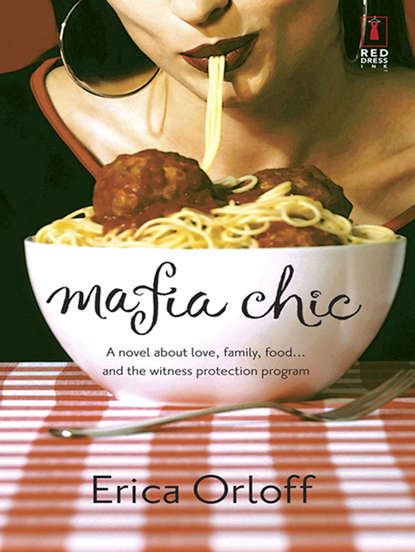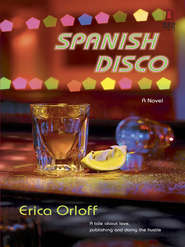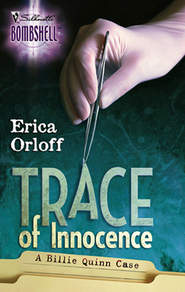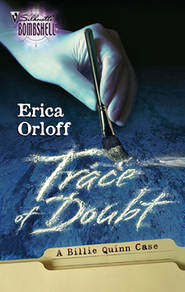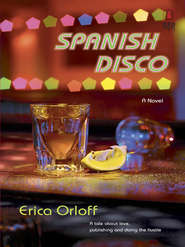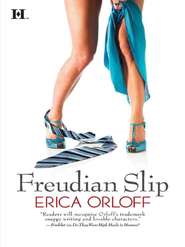По всем вопросам обращайтесь на: info@litportal.ru
(©) 2003-2024.
✖
Mafia Chic
Автор
Год написания книги
2018
Настройки чтения
Размер шрифта
Высота строк
Поля
“No. That’s not why I called. Well…now that you mention it, that dress might be good. But no…I need you to distract my ‘bodyguards.’”
“Right-o. No problem.”
“Don’t you think it’s a little ridiculous that I’m a woman in my mid-twenties and I’m still being baby-sat?”
“Yes. But one of your baby-sitters is your cousin Tony. And I find him positively delicious. So, for purely selfish reasons, I rather find it amusing.”
“You’re impossible.”
“But that’s what makes me so irresistible.”
“Look, just help me duck out unnoticed.”
“You can count on me. I always feel all James Bond when we do this, you know.”
“I feel a little Godfatherish when we do it. But either way, next Thursday keep them busy. I’d like to get in a first date without them looking over my shoulder. And the black dress would be nice, too.”
“It’s yours.”
“We have six days to plan.”
“And plan we shall. Must run now.”
“Ciao.” I put the phone down. I had stopped going to church years ago, but if I was still a church-goer, I would have said four novenas and five Hail Marys that my date with Robert Wharton went off without a hitch.
Chapter 3
Calling what my family does on Sundays “dinner” is like saying the pope is just another priest with a fancier hat.
Lady Di and I arrived at Sunday dinner to the usual chaos of the Marcello clan with a couple of Gallos thrown in for good measure. In the kitchen my mother was making an immense pot of gravy. Not only was the pot big enough for one of my little cousins to use as a fort when not filled with gravy, but Ma couldn’t even move it from one burner to the next without the help of my cousin Tony.
My aunt Marie, aunt Gina, aunt Connie and assorted other aunts, and wives and fiancées of my male cousins were all crowded into the kitchen as well, supervising my mother. This routine goes on until my mother has had it with the lot of them and chases them all out with a wooden spoon. For every infraction I committed as a child, the wooden spoon was threatened. Not that she ever actually spanked me with it. She just chased my brother and me throughout the house, screaming in Italian.
The women all clustered around the stove. “Add more oregano, Rose.”
“It needs a pinch of…something. Hold on…maybe some more garlic.”
“Can’t have too much garlic.”
For my mother, the red stuff she slaves over is a religion. She has been known to actually break out in a cold sweat at the sight of a jar of Ragú. That’s sacrilege of the highest order.
Lady Di and I always gather in the kitchen because it’s what we do, feminism aside. The men watch football during the season, and with most of them heavy gamblers and bookies, it’s either a joyous occasion or the cause of a lot of screaming. Either way, the language flying through the room would make Sister Mary Catherine of my old grammar school roll over in her grave.
Lady Di is considered an oddity, being as she comes from way across the Atlantic, and she had never even eaten true gravy before meeting my family, nor had she ever teased her hair, or even discovered the wonders of Aqua Net hairspray—the aerosol-can variety. I’m not even sure if the Aqua Net company still makes it, thanks to the ozone layer’s problems. However, my mother and her sisters have enough stockpiled to take them into the next decade.
“Diana, honey, can you stand a little advice?” My aunt Gina cornered us in the kitchen. Diana had no time to answer before Gina, cigarette dangling from the corner of her mouth, was pinching her. I don’t mean like a little pinch on the cheek, either. I mean she was pinching her upper arm for all it was worth—Lady Di showed me a bruise later. “You could stand a little meat on these bones.”
“Well…I—”
“Honey…men don’t like bags of bones. You wonder why you’re not married? This is why.” She stated this with such certainty, oblivious to Di’s beauty.
“Actually, Aunt Gina—” I felt the need to defend my pinched roomie “—Diana has a lot of boyfriends, and she’s been proposed to three different times. She’s not married because she doesn’t want to be married.”
“Bullshit.” Aunt Gina pinched her again. “Look at this. You see this, Andrea?” She motioned to one of my other aunts. “You see this? Both of them. Really, Theresa Marie, you, too. You think you’re all fancy living off in that city, but when your uncle Rocky proposed to me, I was the babe of Brooklyn.”
I stared at Aunt Gina and glimpsed, beneath the pile of big hair, the perfumed face powder and the sixteen gold-and-diamond necklaces she wore stacked around her neck like a snake’s coils, the beautiful neighborhood girl she once was. I still love looking at old pictures of them, just as I loved looking at them as a little girl. I laugh when I see pictures of them all from back then, the girls in eyeliner and Pucci dresses—the first time Pucci was in—the boys in zoot suits too big for them. They all have highball glasses in one hand, cigarettes in the other. You can see the smoke swirled around their faces and can almost smell it, as well as hear the giggles and tough talk, mixing together as they lived “the life” then.
“I’m sure you were, Aunt Gina.”
“I was. Ask your mother, Theresa. Ask her.”
Lady Di humored her. “So come on, Mrs. Gallo, were you girls ‘it’ back then? The bomb?”
My mother usually waves off such talk with a flick of her spoon and a roll of her eyes. But her sisters wouldn’t let it rest. “Come on…” Aunt Marie snuck up behind my mother and pinched her on the arm. “Tell the girls about when we used to go out in the city.”
“Honey…” Aunt Gina gestured with her thumb toward the living room where we could hear screams and cheers erupting after various plays in the game. “They may not look like much now, those balding bastards, but way back when they were all catches, every last one of them.”
My mother twirled around. “Theresa…every girl was in love with your father. But his family was considered trouble. He was a bad boy, you know. But underneath it, I could tell he was a real softie. Now, all of you—” she glared at the room full of us, packed tight around the table “—get outta my kitchen!”
We scattered—not before Aunt Connie reiterated for the twentieth time that the gravy needed both garlic and oregano. In the living room, my male cousins, three of whom are named Tony, clustered around Lady Di. She chose to sit next to the “hunky” Tony, who had staked out our apartment not three days before. His massive biceps belied the fact that I knew he liked nothing better than to cook pastry. He sometimes came up to our apartment and I taught him recipes. He was a fast learner. I know he liked being up there with Diana and me. Whenever he was around her, he stood a little taller, and he never cursed. He was an amateur chef in the making, but he’d never let the family know that. Pizza was one thing—maybe—pastry was another.
A half hour, and one Giants touchdown and an interception later, it was halftime and that meant we would shovel food in as fast as possible before the game resumed.
The first course was eggplant parmigiana, as well as a heaping bowl of homemade ravioli stuffed with ricotta that Ma got special from the Italian deli. Then she brought out huge bowls of gravy, teeming with large sausages, meatballs and whole lamb chops on the bone. This was served on pasta, also homemade. Garlic bread, a large salad, bowls of olives and plates of sliced pepperoni and fresh mozzarella, which, if you’ve never had it, has the consistency of congealed I-don’t-know-what. It’s beyond gross, wet and rather tasteless, but the Italian deli carries that, too.
And we were just warming up.
Later, a huge ham came out. Followed by a seafood course, including an Italian version of octopus, legs flopping over the side of the bowl, looking like they were trying to make a run for it. Through it all, as bowl and pan, and plate and platter made their way from the kitchen to the table and everyone started fanning himself or herself as the temperature in the house rose from the oven opening so often and boiling pots on the stove, my mother never sat down. She moved from kitchen to the dining room, back and forth, back and forth. She sat down occasionally, but watched over the table like General Patton, waiting for a movement of the troops that might signal we needed something, then she’d leap up and fetch it. Bottle after bottle of good red wine was opened. Forget letting it breathe. Around our house, a bottle of wine never sits still long enough to breathe.
I loved watching the insanity of it all. Sundays were sacred when I was growing up. I think that’s why I ended up being a chef. I didn’t go to culinary school. I was raised in culinary school, standing on a stool with a makeshift apron on—a towel tied in the back. I learned, as a little girl, that the way to my father’s heart was through his stomach, and by the time the whole stereotype of the “little woman in the kitchen” was something to resent, I was hooked. The kitchen was where I felt content and happy; cooking was a way to relax, a way to create.
The men ate huge mouthfuls of food, occasionally grunting their approval. Poppy Marcello was especially happy with the sausage. Lady Di consumed five glasses of red wine and got giddy enough to ask Uncle Rocky to sing a Louis Prima song, then some Frank Sinatra. Call it the Marcello version of karaoke. We laughed and ate, but I noticed my mother wore a pair of house slippers and, not for the first time, I could see how Sundays wore her out, even when she wasn’t hosting. But if I offered to help her she would turn me down flat. This was her show, just like, I guess, at my restaurant, the kitchen was my show. I hated when Quinn came back, lifting lids to pots and looking over my shoulder. “Go back to chasing the waitresses,” I’d yell at him.
The women all rose and began clearing as soon as the game came back on. The men would take plates in front of the television for further eating while my mother readied dessert. At one point, Ma and I were alone in the kitchen.
“I wish one of these Sundays you’d bring home a man, Theresa Marie. None of us are gettin’ any younger.”
“I know, Ma.” I rolled my eyes and tried to find room in the overstuffed fridge to put leftover eggplant. It didn’t look like I’d fit a single black olive in there.
“I don’t understand what’s so hard. There are what, forty million men in Manhattan? At this point, I give up on you even finding someone from Brooklyn. Manhattan would be fine. Non-Italian would be fine. You can marry an Irishman. Hell, a nice Jewish boy. Just someone. A warm body, for God’s sake. Though Catholic would be good. Your father would like that.”
“First of all, Ma, there aren’t forty million men in Manhattan. Second, however many there are…forty percent of them are gay.”
“Very funny.”
“I’m not kidding.”
She slammed down a pan. “You should move back home.”





